When you think of property management, it often brings to mind site visits, tenant coordination, and payment tracking. But behind all of that is a constant stream of inquiries, follow-ups, and updates that need to be handled with precision. Managing this manually can slow things down and create gaps in communication.
A CRM in property management helps bring all these moving parts together. It keeps every lead, conversation, and task organized so nothing falls through the cracks. In this blog, you’ll see how a CRM can simplify property management, reduce manual work, and improve how teams handle day-to-day operations, from the first inquiry to final closure. Let’s get started!
Role of CRM in Enhancing Property Management Efficiency
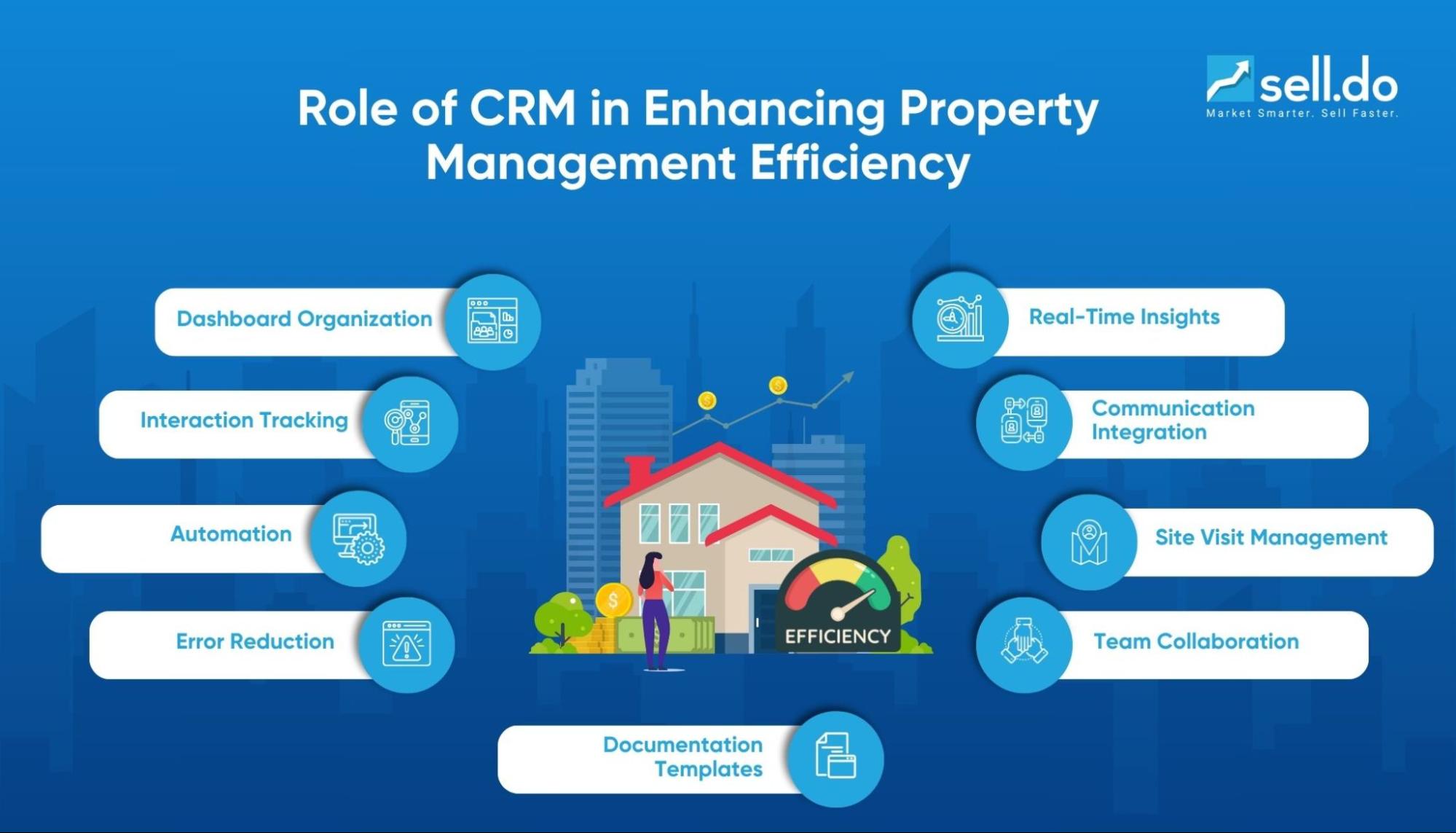
A CRM in property management plays a vital role in improving how teams handle sales, customer interactions, and ongoing tasks linked to residential or commercial projects. It acts as a central hub where all your lead data, follow-ups, documents, and updates come together in one place. Instead of jumping between spreadsheets, calls, and multiple apps, teams can manage everything within a single system. This brings more control, fewer delays, and better decision-making across departments.
Here’s how a CRM helps manage properties more efficiently:
- Keeps all lead, client, and project details organized in one dashboard
- Tracks every interaction, from first contact to final booking, without missing a step
- Automates follow-ups, reminders, and escalations so teams don’t lose time on manual tasks
- Reduces human errors by removing the need for duplicate data entry across systems
- Speeds up documentation with templates for quotations, cost sheets, and agreements
- Helps sales and pre-sales teams work in sync with complete visibility into every client journey
- Supports faster site visit scheduling and feedback collection
- Makes communication easier through WhatsApp, email, and phone integrations
- Offers real-time insights so managers can track performance and take action quickly
Instead of just managing properties, a CRM helps teams manage them smarter with more visibility, less friction, and faster response times.
Recommended: Real Estate Newsletter Ideas and Examples for 2025.
Let’s look at how it works in practice across key functions.
How can CRM help in Property Management?
Property management demands consistent coordination, clear communication, and fast decision-making. A CRM brings structure to this process by creating a system where every team member knows what to do, when to do it, and how to keep clients informed, making your workflow more reliable and results easier to achieve.
Here’s how a CRM can help with property management:
Automating Routine Tasks
CRMs help property management teams cut down on repetitive manual work. Tasks like rent payment notices, appointment reminders, and status updates can be automated to run in the background. This reduces dependency on manual tracking and allows teams to focus on client interactions and revenue-generating activities. With scheduled communication, auto-assigned tasks, and workflow-based alerts, nothing gets missed—even during peak periods.
Centralized Access Through Mobile Integration
Modern CRMs offer mobile apps that keep your team connected, even when they’re on the move. Sales executives, site managers, and customer support staff can check leads, schedule visits, or update records without needing to return to the office. This kind of flexibility improves responsiveness, speeds up decision-making, and reduces delays during client engagement. It also makes internal communication easier, since everyone sees the same real-time updates, no matter where they are.
Improving Customer Experience with Timely Communication
A CRM in property management isn’t just about managing data—it’s also about building better client relationships. When your teams respond quickly to queries, follow up without delay, and stay consistent across channels, customers notice. CRMs make this possible with omnichannel tools like WhatsApp integration, email templates, and follow-up automation. This consistency builds trust and helps convert leads into bookings more effectively.
Using Analytics to Optimize Operations
CRMs provide more than just data storage—they offer valuable insights into performance. Managers can track campaign success, lead conversion rates, site visit outcomes, and inventory status all in one place. These insights help identify gaps in sales cycles, underperforming units, or common service delays. Over time, this improves forecasting, resource planning, and cost control across property management operations.
Supporting Better Team Collaboration
In property management, multiple teams often work on the same lead, from pre-sales to site visits to final bookings. A CRM creates a shared space where everyone can view lead history, update statuses, assign tasks, and add notes. This reduces duplication of efforts and avoids internal miscommunication. With clear accountability and real-time visibility, teams stay aligned and focused on delivering better service.
Also, check our blog: How to Use a Real Estate Database for Agents.
Next, let’s break down the key benefits it brings to your daily workflow.
Benefits of CRM Integration in Property Management
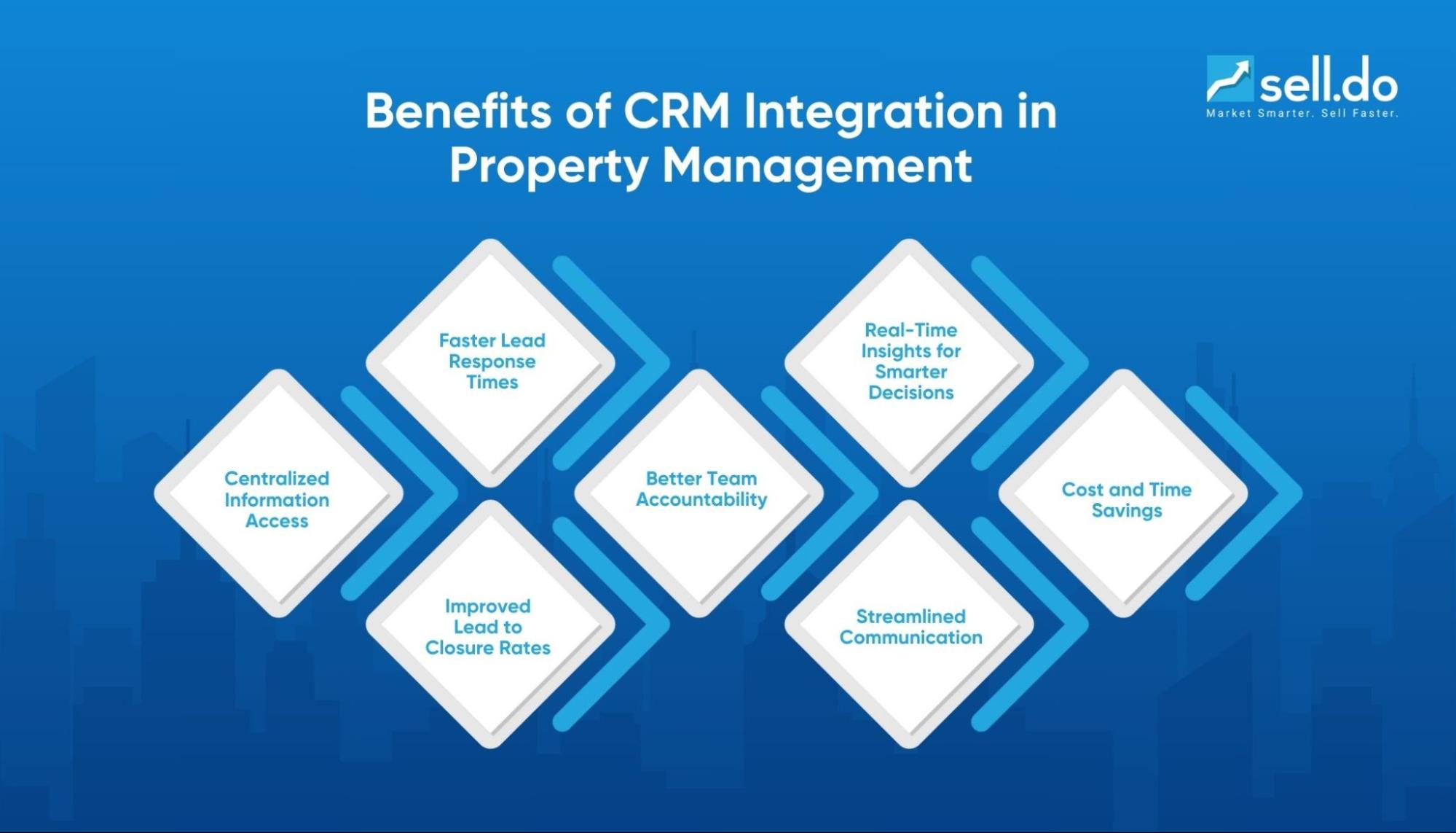
Here are some key benefits of integrating a CRM into your property management process:
- Centralized Information Access: All lead, client, and property details are stored in one place, reducing confusion and improving coordination between teams.
- Faster Lead Response Times: With automated alerts and mobile access, teams can respond to inquiries quickly and keep potential buyers or tenants engaged.
- Improved Lead-to-Closure Rates: CRMs track every touchpoint with a lead, helping teams follow up at the right time and convert more inquiries into confirmed bookings.
- Better Team Accountability: Assigned tasks, timelines, and activity logs ensure each team member knows their role, reducing delays and missed follow-ups.
- Real-Time Insights for Smarter Decisions: Dashboards and reports highlight what's working and what’s not, allowing managers to adjust strategies and allocate resources efficiently.
- Streamlined Communication: Integrated email, WhatsApp, and SMS tools help teams maintain consistent communication with clients without switching between platforms.
- Cost and Time Savings: Automation cuts down on manual work, reduces human error, and frees up time for more valuable tasks like client relationship building.
These benefits highlight why more real estate professionals are turning to CRM systems to simplify operations and improve service delivery. But to get the most out of a CRM, it’s important to choose one that fits your specific needs.
You can also check our blog, How to Offer a Smooth Digital Experience for Property Buyers.
Key Considerations for Choosing a Property Management CRM
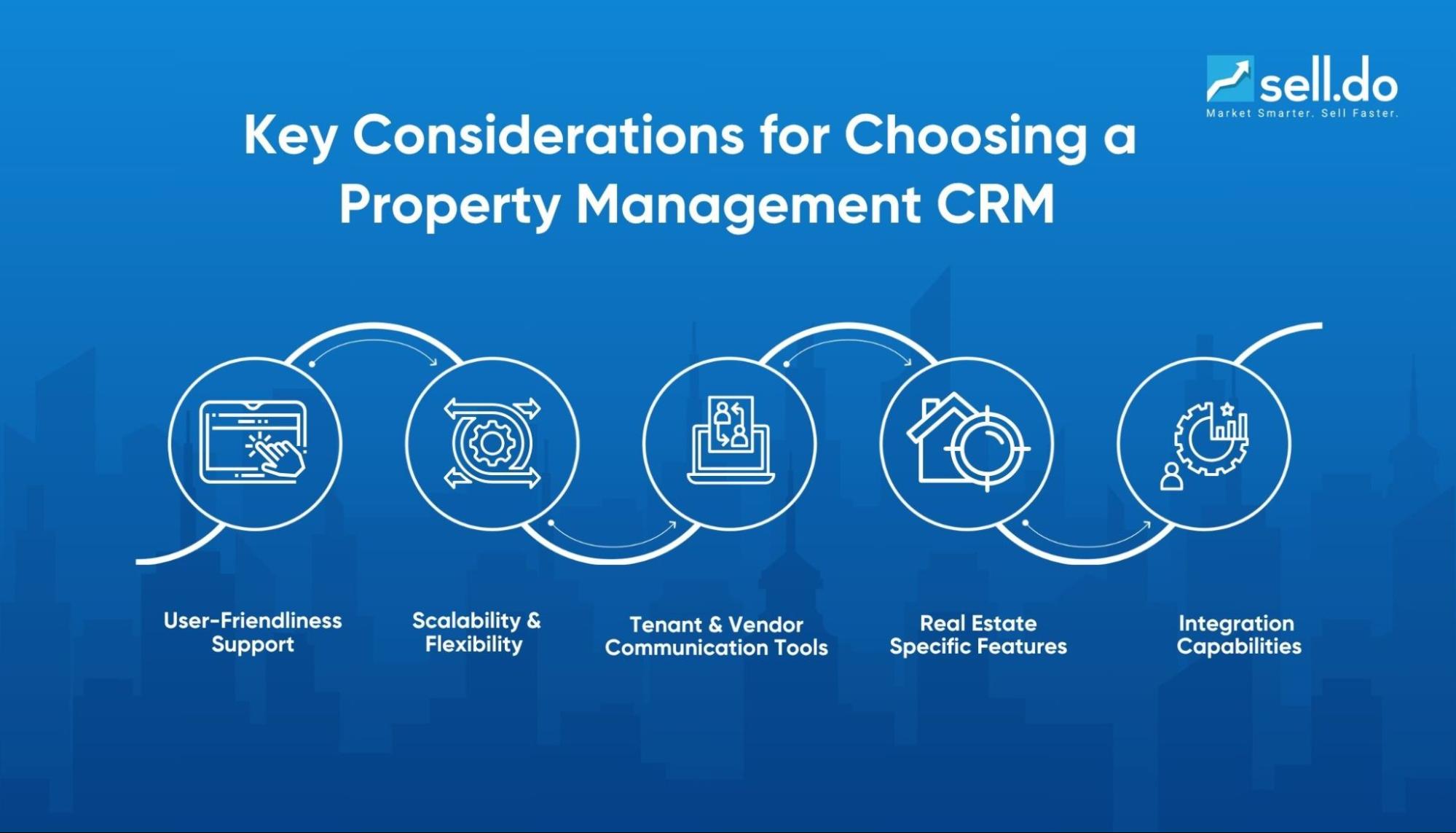
Here are five factors to keep in mind when selecting a CRM for property management:
- User-Friendliness and Customer Support: A CRM should be easy for your team to use without requiring constant training. Reliable support is equally important to ensure quick issue resolution and minimal downtime.
- Scalability and Flexibility in CRM Solutions: As your portfolio grows, your CRM should scale with it. Choose a solution that adapts to new users, additional properties, and evolving workflows without friction.
- Tools for Enhanced Interaction with Tenants and Vendors: Built-in communication tools—such as automated emails, WhatsApp, and reminders—make it easier to stay in touch with tenants, vendors, and site teams.
- Real Estate-Specific Features: Generic CRMs may miss the mark. A real estate-focused CRM understands the industry’s needs, such as inventory mapping, cost sheet generation, and site visit tracking, making your work more seamless.
- Integration Capabilities: Your CRM should work well with your existing tools—like ERP systems, marketing platforms, or payment gateways—to avoid scattered data and duplicated work.
While features and usability are important, it’s equally essential to consider how the CRM handles data security and privacy.
Also Read: How to Get Better ROI with Smarter Real Estate Marketing.
Data Security and Privacy in CRM Systems
Protecting client data is a responsibility every property management business must take seriously. A reliable CRM should come with strong security protocols that help you meet legal obligations around storing and handling guest information. This includes access controls, data encryption, and regular backups to prevent loss or misuse.
Transparent data usage policies also build trust with clients and partners. Make sure your CRM provider complies with both local and international privacy laws like GDPR, especially if you’re dealing with overseas buyers or investors. This not only keeps your business compliant but also protects your reputation.
Need creative ideas for your campaigns? Check our blog for Real Estate Marketing Ideas and Trends for 2025.
While generic CRMs may offer basic tools, they often fall short when it comes to the specific demands of property management. From data handling to daily workflows, these systems can’t fully support the complexities of real estate operations. That’s why choosing a dedicated real estate CRM makes all the difference.
Introducing Sell.Do: The All-in-One CRM for the Real Estate Industry
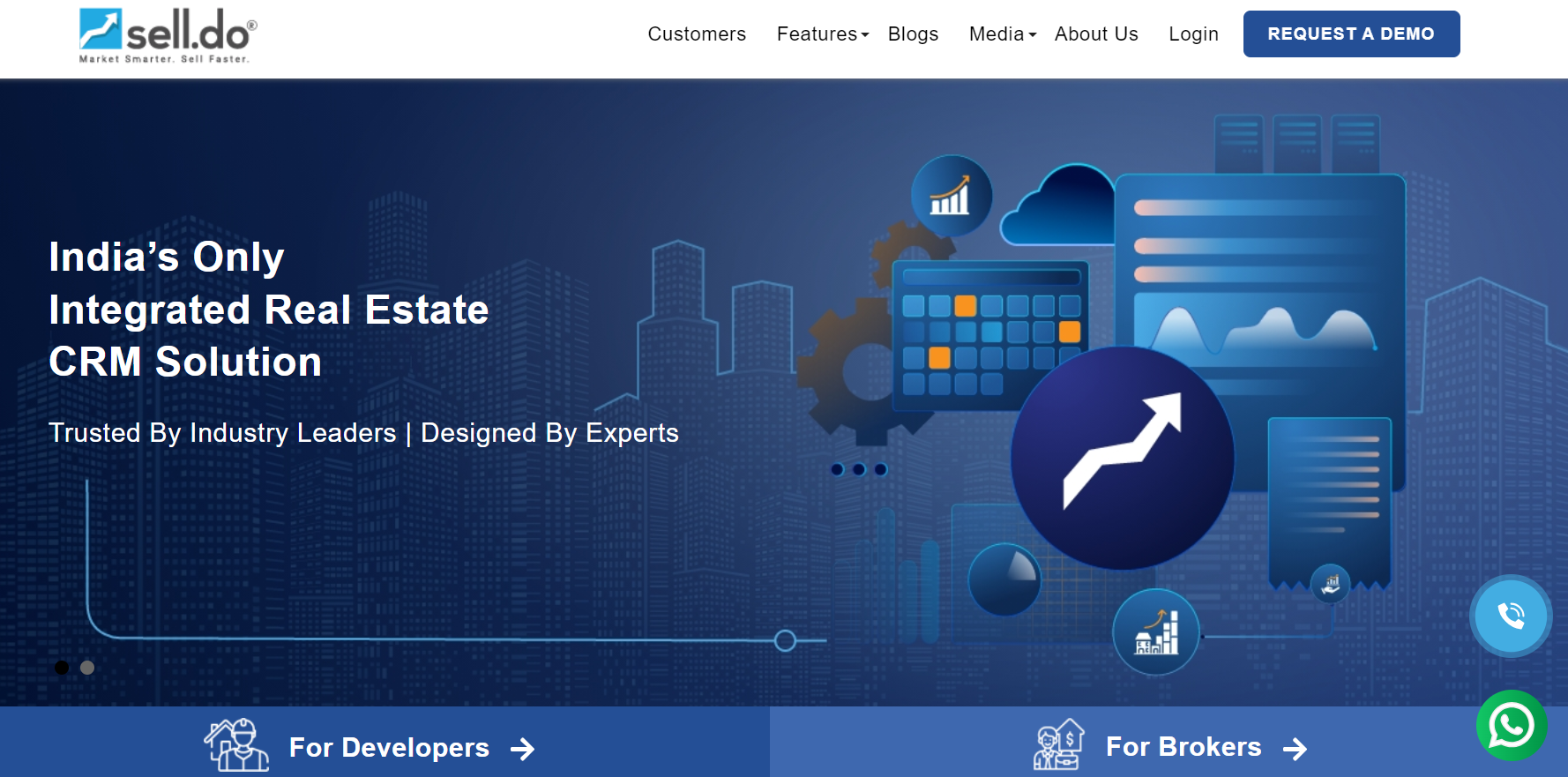
Sell.Do is a CRM built specifically for the real estate industry. Unlike generic solutions, it understands how property businesses work—offering tools that support everything from lead management and inventory tracking to documentation and post-sales follow-ups. Backed by Aurum PropTech and trusted by over 1000 developers since 2012, Sell.Do brings over a decade of real estate expertise to the table.
With clients across 26 cities in India and three countries, a 75-member tech team, and recognition as the highest-rated real estate CRM on G2, Sell.Do is designed to simplify your property management processes while helping you grow faster and serve better.
- Centralized Lead and Tenant Management: Maintain all lead and tenant information in one unified platform, facilitating easy access to communication histories and ensuring consistent follow-ups.
- Automated Communication: Automate emails, SMS, and reminders for lease renewals, rent payments, and maintenance requests, reducing manual workload and enhancing tenant satisfaction.
- Maintenance Tracking: Efficiently log and monitor maintenance issues reported by tenants, ensuring timely resolutions and improved service quality.
- Task and Workflow Automation: Automate routine tasks such as follow-ups and reminders, allowing your team to focus on more strategic activities.
- Customizable Reporting: Generate detailed reports on key metrics like rent collection, lease expirations, and occupancy rates to inform decision-making and identify areas for improvement.
- Integration with Other Systems: Seamlessly integrate with accounting software, listing platforms, and other tools to streamline operations and avoid data duplication.
By leveraging these features, property managers can enhance operational efficiency, improve tenant satisfaction, and make informed decisions to drive business growth.
Conclusion
Efficient property management requires organized communication, timely follow-ups, and seamless team coordination. A CRM can play a key role in integrating these elements, helping you save time, reduce errors, and enhance service quality.
However, you need a CRM that’s built for the real estate industry, understands your processes, and supports your day-to-day tasks without the need for workarounds or third-party integrations. This is why Sell.Do stands out as a proven solution designed with real estate in mind. With its feature-rich platform, industry-focused tools, and a track record of supporting over 1000 developers, it's a CRM that helps property businesses stay on top of operations while focusing on growth.
If you're looking to simplify property management with a platform that understands your world, Sell.Do is your answer.
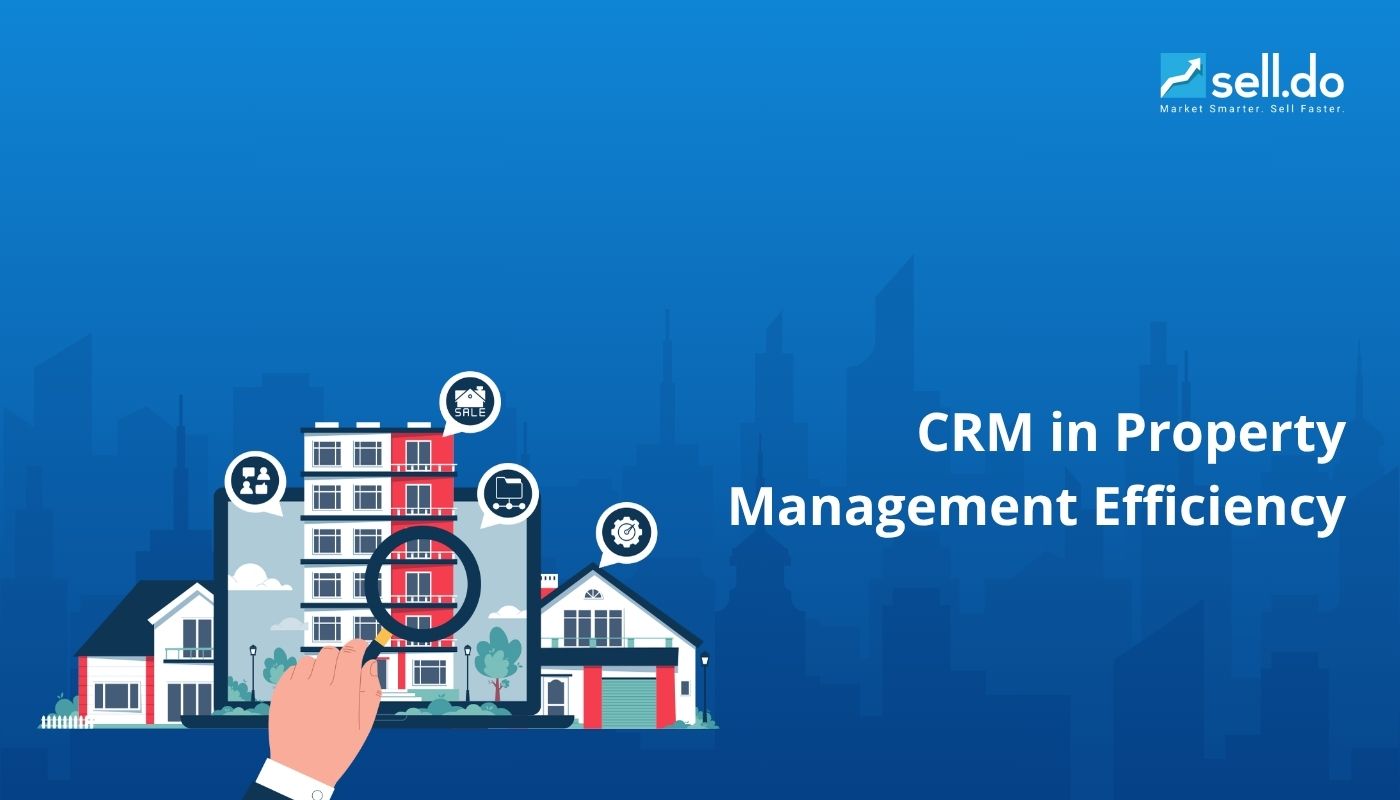
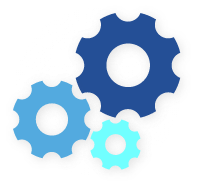

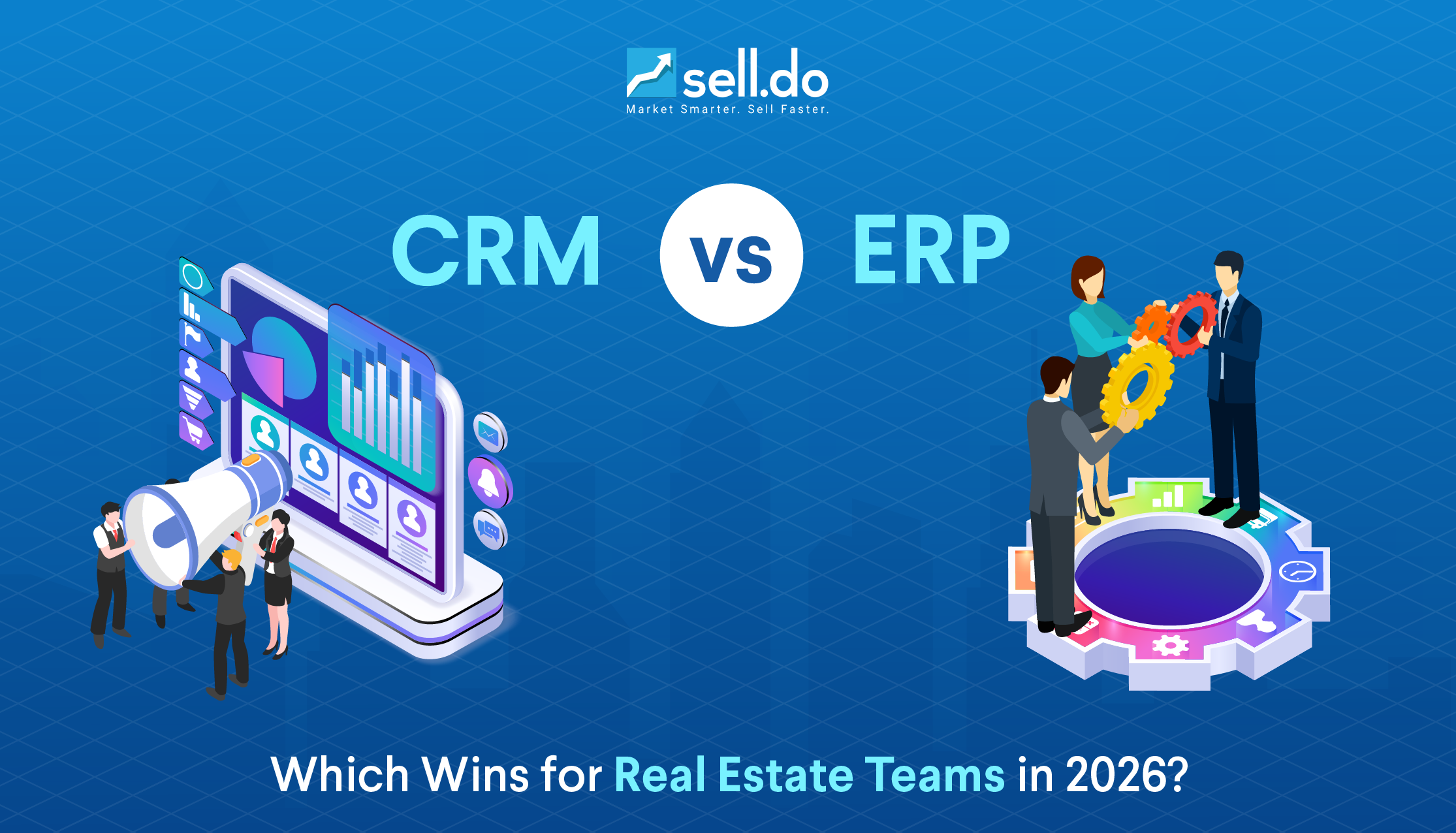
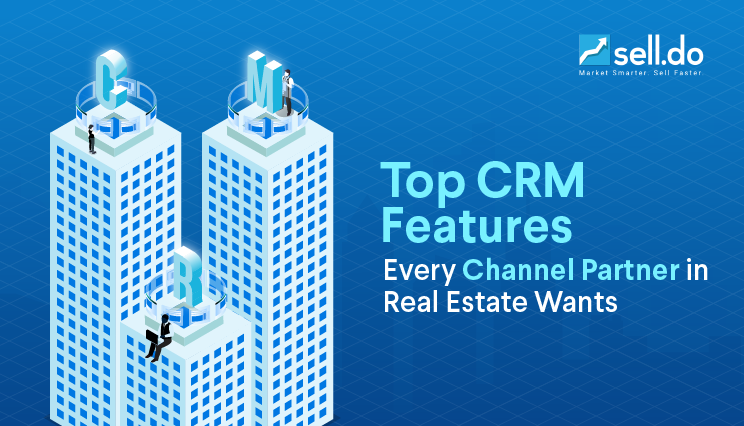
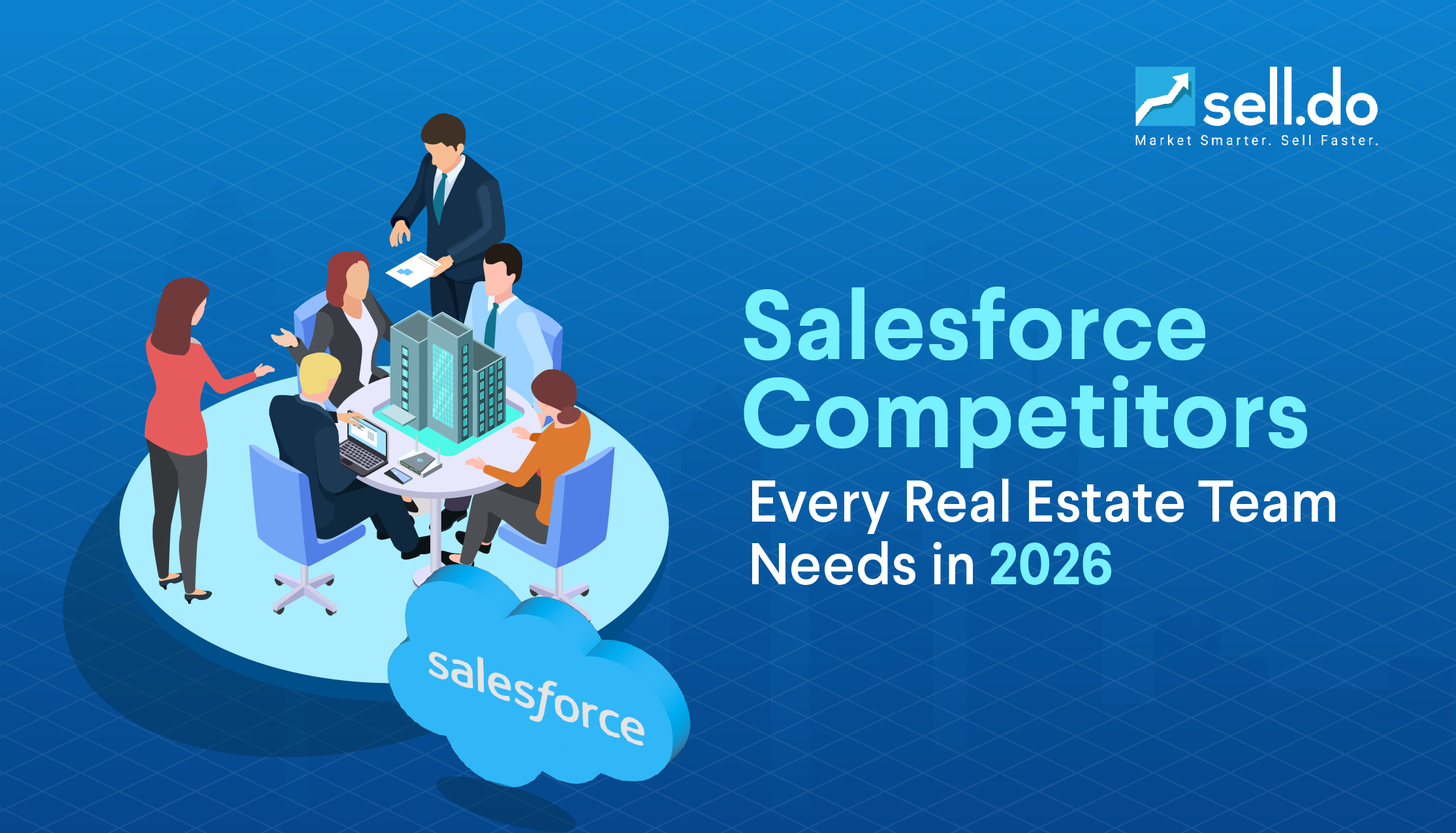
Leave a comment
Comments (0)
Be the first one to comment.